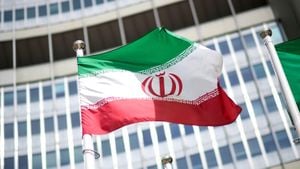The political drama within South Africa's African National Congress (ANC) reached new heights on November 22, 2024, as the party confirmed the expulsion of former president Jacob Zuma. This decision follows Zuma's rejection of the party's earlier ruling, which expelled him due to his support for the newly formed uMkhonto weSizwe (MK) party, unarguably seen as a direct challenge to the ANC's authority.
Historically, Zuma has been one of the ANC's most prominent figures, having been its president from 2007 until 2017 and serving as the country's president from 2009 until 2018. His leadership, tainted by numerous scandals and allegations of corruption, significantly altered the party's reputation. Despite this, he had remained influential, particularly among his loyal supporters base, especially from his home province of KwaZulu-Natal.
The ANC's National Disciplinary Committee upheld his expulsion, citing Zuma's formation of the MK party as a breach of party rules—specifically, the directive against members undermining the ANC's unity and principles. Party spokesperson Mahlengi Bhengu-Motsiri articulated the party's commitment to maintaining discipline within its ranks, emphasizing, "No individual, regardless of their legacy, is above the rules of the ANC." This sentiment reflects the party's determination to preserve integrity amid its internal crises and the growing discontent among voters as the 2024 elections loom.
Prior to this expulsion, Zuma had submitted appeals, claiming support for the MK party was aligned with his ambitions to reclaim his influence within the ANC. He demanded to present his case personally, rather than through virtual meetings; this request was denied, leading directly to the severing of ties altogether. The ANC's statement on the matter highlighted Zuma's actions as embodying "the highest form of ill-discipline," asserting the necessity for the party to stand firm against any individual attempting to destabilize its foundations.
The MK party, founded by Zuma after his resignation, has captured attention, particularly among those disillusioned with the ANC's governance. It has begun to make waves within political circles, even coming third during recent parliamentary elections, which is remarkable considering the party's nascent status. This outcome signifies not only Zuma's continued popularity but also the shifting political climate within South Africa, characterized by increasing voter dissatisfaction with the ANC. The party's recent electoral dips are reflective of broader concerns including corruption and government inefficiencies, prompting many to seek alternatives.
Observers note the significance of Zuma's departure from the ANC. Some argue this could lead to the weakening of its traditional support base and amplify the growing split within the organization. The party's leadership is now faced with the pressing task of restoring public trust before the upcoming general elections.
Despite Zuma's ousting, the repercussions on the political chessboard are still to be fully realized. Supporters of the former president continue to loom large, many expressing solidarity with him and dissatisfaction with the ANC's current leadership under President Cyril Ramaphosa. The potential for the MK party to become an influential player raises questions about the future dynamics of South African politics, particularly as electoral campaigns heat up.
Going forward, the ANC's attempt at re-establishing itself hinges not only on its leadership's ability to unite its members but also on how effectively it can counteract the narratives pushed by supporters of Zuma and the MK party. With the political waters churning, it remains uncertain how the ANC will navigate this turbulent chapter and regain its foothold as the dominant force following Zuma's expulsion.



